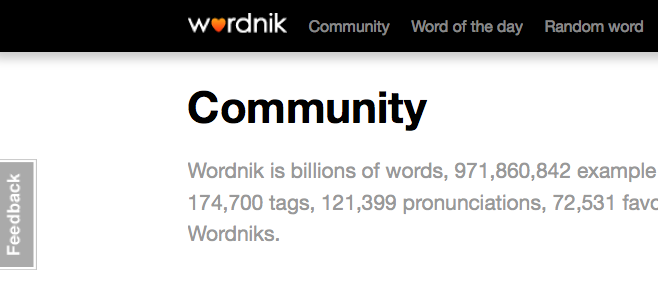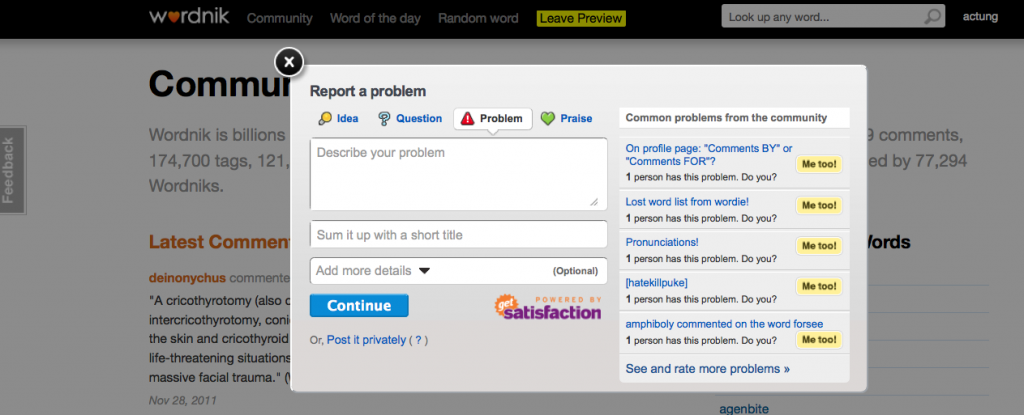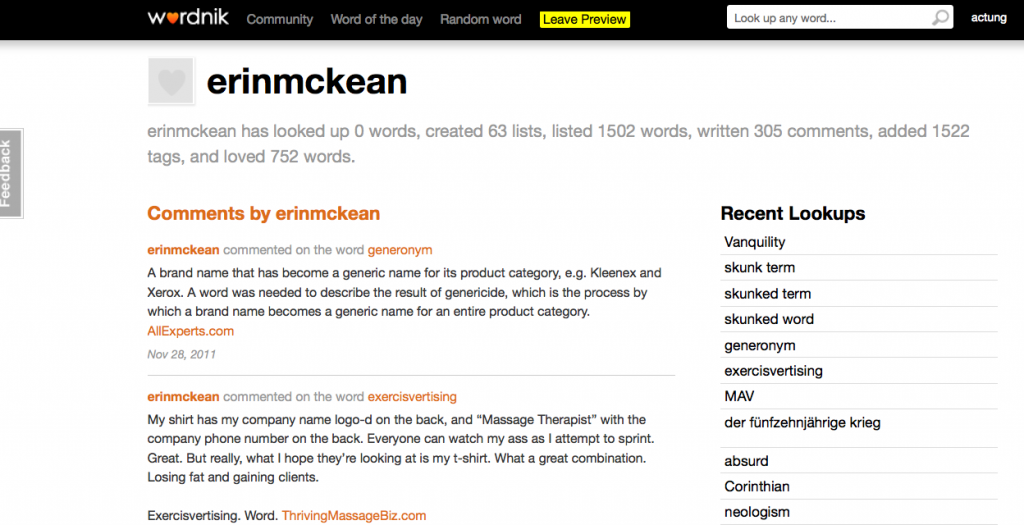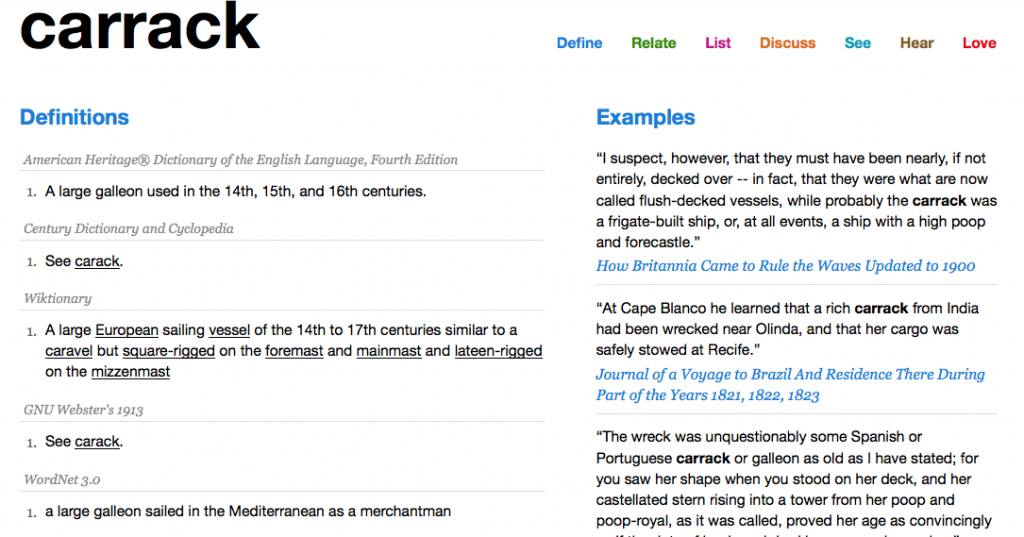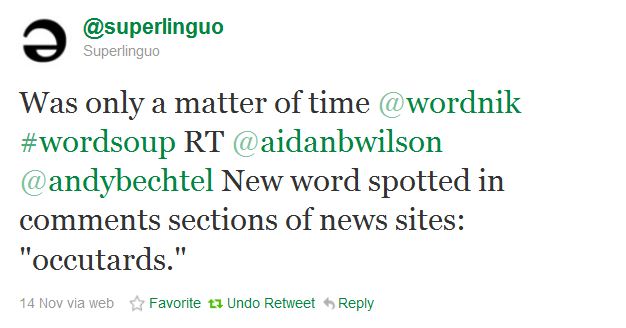Welcome to this special installment of Word Soup! While the television show The Soup brings you “the strange, obscure and totally unbelievable moments in pop culture, celebrity news and reality TV,” Word Soup brings you those strange, obscure, unbelievable (and sometimes NSFW) words from talk shows, sitcoms, dramas, and just about anything else on TV.
Today’s Word Soup is dedicated to the new lexicon that Glee has introduced to Gleeks across the country.
Asian F
Mike: “I got an A minus, Tina.”
Tina: “You got an Asian F?”
“Asian F,” October 4, 2011
Asian F plays on the stereotype that Asians and Asian Americans are academic overachievers. Hence, anything lower than an A would be seen as failing.
bear cub
Karofsky: “I’m what they call a bear cub.”
“The First Time,” November 8, 2011
The word bear in gay culture refers to a large hairy bear-like man. Hence, a bear cub refers to a younger large hairy man.
cash money
Puck [to Shelby]: “Screw you. Sure you’ve got the boom and the pow, and your lips are cash money. But what really turned me on about you was how much of an asskicker you were, winning all those championships, going to New York, raising Beth on your own.”
“I Kissed a Girl,” November 29, 2011
Cash money in this context means exemplary or awesome, and may be a play on the use of money in the 1996 film Swingers with a similar meaning, as well as the sense of being kosher or copacetic. “That was so fucking money. That was like the Jedi mind-shit.”
CW hair
Kurt [to Sebastian]: “I don’t like your smirky little meerkat face. I don’t like your obnoxious CW hair.”
“Hold on to Sixteen,” December 6, 2011
CW hair refers to the trendy hairstyles of the young stars of certain shows on the CW television network, such as 90210, Gossip Girl, One Tree Hill, and The Vampire Diaries. Another hairstyle based on a TV character is the Rachel.
DEFCON 1
Rachel: “I’m gonna be emotional DEFCON 1 until they release the results for the musical.”
“I Am Unicorn,” September 27, 2011
DEFCON stands for defense readiness condition, “an alert posture used by the United States Armed Forces.” DEFCON 5 is the least severe while DEFCON 1 is the most severe. One of the first instances of DEFCON used in popular culture was in the 1983 film WarGames. “See that sign up here – up here. DEFCON. That indicates our current defense condition. It should read DEFCON 5, which means peace. It’s still on 4 because of that little stunt you pulled.”
ear candy
Sugar Motta: “Get ready to taste some sweet ear candy.”
Ear candy is “light popular music considered to be pleasing” and is based on the 1977 Helen Reddy album of the same name. The visual equivalent, eye candy, “someone or something that is visually attractive or pleasing to look at,” is attested to 1978. Nose candy, or cocaine, attests to 1930, while arm candy, “an attractive person who accompanies another to public gatherings but is not romantically involved with that person,” may have originated in the mid 1990s.
“The Purple Piano Project,” September 20, 2011
flannel closet
Santana: “Do you realize you’re basically forcing me out of the flannel closet?”
“I Kissed a Girl,” November 29, 2011
Flannel closet is based on the phrase, in the closet, “not open about one’s sexuality.” To come out of the closet means to “to tell others abouthomosexuality, bisexuality or any minority or disapproved-of belief, preference, etc, where previously this had been kept secret.” The secretive sense of the word closet first referred to alcoholism (1952), but by the 1970s was “used principally of homosexuality.” Flannel refers to the stereotype that lesbians favor flannel clothing.
friend of Ellen
Sue: “Why would someone assume I’m a friend of Ellen just because I’m mannish and I have short hair and I only wear track suits and I coach a girls’ sport and I married myself?”
“I Kissed a Girl,” November 29, 2011
Friend of Ellen is based on the phrase friend of Dorothy, a euphemism for a gay man. The origin of friend of Dorothy is obscure. It dates back to at least World War II, during a time when “homosexual acts were illegal in United States.” Dorothy refers to either The Wizard of Oz’s Dorothy Gale, played by Judy Garland, a gay icon, or the writer Dorothy Parker, “who included some gay men in her famous social circle.” Ellen refers to the openly gay talk show host and entertainer, Ellen DeGeneres.
glee-otch
Bully [to Finn]: “Taste the rainbow, glee-otch!”
“The Purple Piano Project,” September 20, 2011
Glee-otch is a blend of glee and beeyotch, an alternative pronunciation of bitch, which in this context means “a man considered to be weak or contemptible.” A glee-otch is a weak or contemptible man (ie, Finn) who is also in glee club. Taste the rainbow refers to the Skittles candy tagline.
high pony
Sue [to Quinn]: “You’ve lost your child, your boyfriend, your rep, and worst, your high pony.”
“I Am Unicorn,” September 27, 2011
A high pony is a ponytail that sits high on one’s head, often worn by cheerleaders. Last season Quinn cut her hair in rebellion. See bump it.
inner bridezilla
Will: “Look, Emma, I’m not scared of your inner bridezilla.”
“Asian F,” October 4, 2011
Inner bridezilla plays on inner child, “the essential, or original self, regarded as a child, existing within the shell of an adult, especially when suppressed by negative childhood experiences,” a pop psychology concept that originated in the 1970s. Bridezilla, a blend of bride and Godzilla, a monster from Japanese horror films, is “a woman who, in the course of planning her wedding, exercises or attempts to exercise an high degree of control over all or many minor details of the ceremony and reception.” The term seems to have originated in the 1990s.
mash-off
Shelby: “Each group is going to put together their own mash-up to perform head to head.”
Will: “In the first annual McKinley High Mash-Off!”
“Mash Off,” November 15, 2011
A mash-up in this context is “a remix that combines two or more songs from different artists into one track.” The earliest citation of mash-up as a mix of things is from 1859. Mash-off is a play on the term dance-off, a dancing competition.
ninja
Tina [to Mike]: “This is your chance to break out and show everybody that you’re more than just a fleet-footed dance ninja.”
“Asian F,” October 4, 2011
Ninja in this context means someone who acts “in the manner of a ninja, especially in the areas of speed and power.”
play the victim card
Will: “You’re not a little girl anymore, Quinn. How long do you plan on playing the victim card?”
“I Am Unicorn,” September 27, 2011
Play the victim card is a variant of the phrase play the race card, to exploit “either racist or (more frequently) anti-racist attitudes to gain a personal advantage.” Play the race card seems to have originated in the UK in the 1960s, and may be a variation of “Nixon’s 1970s rapprochement with Beijing – known as playing the China card,” both of which may be based on the phrase, play the trump card. A trump card is “a card in the trump suit, held in reserve for winning a trick,” and figuratively, “a key resource to be used at an opportune moment.”
skank
Quinn: “I gotta meet the Skanks on the roof. We’re gonna throw ketchup-covered tampons at the marching band.”
“I Am Unicorn,” September 27, 2011
A skank is “one who is disgustingly foul or filthy and often considered sexually promiscuous,” especially a woman or girl. The origin is obscure and may come from skag, a slang term for heroin. Skank is also “a rhythmic dance performed to reggae or ska music, characterized by bending forward, raising the knees, and extending the hands.”
smell like Craigslist
Kurt [to Sebastian]: “You smell like Craigslist.”
“Hold on to Sixteen,” Glee, December 6, 2011
To smell like Craigslist means to have an air of tawdriness or vulgarity, perhaps due to certain sections of the online classifieds service. The phrase also echoes smells like teen spirit, the Nirvana song.
tappable
Puck [to Shelby]: “You are still the most tappable teacher at McKinley by far.”
“Pot O’ Gold,” November 1, 2011
Tappable means “attractive enough to have sex with” and comes from the phrase I’d tap that, which originated from I’d tap that ass, based on the idea of tapping a beer keg. The origin of I’d tap that ass is unknown, as far as we could find, though xkcd had some fun with the phrase.
Temple of Doom
Sue [to Burt]: “You mess with me, I will Temple of Doom my fist through your chest and pull out your still-pumping artificial heart, which I will then hook up to my car, power us down to the lumberjack convention for some deep discounts on the mid-west’s largest selection of ill-fitting flannels.”
Temple of Doom means “to punch a hole through in a horrifying and inhuman way,” based on the scene from the 1984 movie, Indiana Jones and the Temple of Doom. This is an example of anthimeria, “the use of a word from one word class or part of speech as if it were from another,” especially “the use of a noun as if it were a verb.” See Die Hard and thunder-gun.
“Pot O’ Gold,” November 1, 2011
top ho
Santana: “Senior year is all about being the Cheerios top ho and modeling my fierceness after my numero uno Latina, Paula Abdul.”
Jacob: “Paula Abdul is an Arab.”
“The Purple Piano Project,” September 20, 2011
Top ho plays on phrases such as top dog or top banana, the boss or leader of a pack. Ho is a prostitute and is short for whore. While in some contexts, the use of ho is offensive, in this context it is an act of reappropriation, “the cultural process by which a group reclaims—re-appropriates—terms or artifacts that were previously used in a way disparaging of that group.”
urban camper
Artie [to Sue]: “You said you considered the homeless to be urban campers.”
“Extraordinary Merry Christmas,” Glee, December 13, 2011
Urban camper, one who camps in an urban setting, is a disparaging term for one who is homeless.
unicorn
Brittany: “A unicorn is someone who knows they’re magical, but isn’t afraid to show it.”
“I Am Unicorn,” September 27, 2011
A unicorn is “a fabled creature symbolic of virginity and usually represented as a horse with a single straight spiraled horn projecting from its forehead.”
That’s it for this week! Remember, if you see any Word Soup-worthy words, Gleeky or not, let us know on Twitter with the hashtag #wordsoup. Your word and Twitter handle might appear right here!
